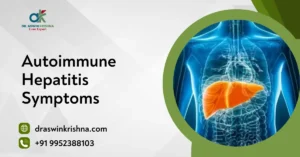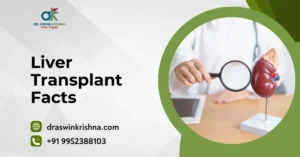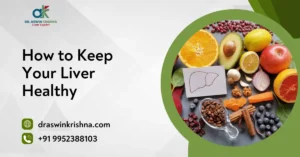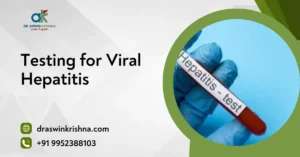When embarking on a journey toward better health, it’s common to wonder if your body is improving. The liver, one of the most vital organs, tirelessly detoxifies your body, metabolizes nutrients, and supports overall well-being. Understanding signs your liver is healing provides reassurance and helps you stay committed to a healthier lifestyle. Dr. Aswin Krishna highlights the importance of recognizing these indicators to measure progress and maintain a positive outlook.
Understanding the Causes of Liver Damage
To fully appreciate the signs your liver is healing, it is essential to understand what causes liver damage. Dr. Aswin Krishna emphasizes the following common culprits:
- Excessive Alcohol Consumption: Overconsumption of alcohol overwhelms the liver’s detoxifying abilities, leading to fatty liver, hepatitis, or cirrhosis.
- Unhealthy Diet: Diets high in sugar, fats, and processed foods strain the liver.
- Toxins and Medications: Certain medications and chemical exposures can harm liver cells.
- Chronic Conditions: Conditions like hepatitis B or C and obesity are major risk factors for liver damage.
By addressing these causes, you can prevent damage and create the conditions necessary for your liver to heal.
Warning Signs of Liver Damage
Before exploring what are the signs your liver is healing, it’s important to recognize symptoms of liver damage. These warning signs include:
- Jaundice: Yellowing of the skin and eyes indicates liver dysfunction.
- Abdominal Pain and Swelling: Pain or bloating in the upper right abdomen may signal liver issues.
- Dark Urine and Pale Stools: These changes often point to liver problems.
- Chronic Fatigue: Persistent tiredness can be a sign of liver trouble.
If you experience these symptoms, seek medical advice promptly to initiate a recovery plan.
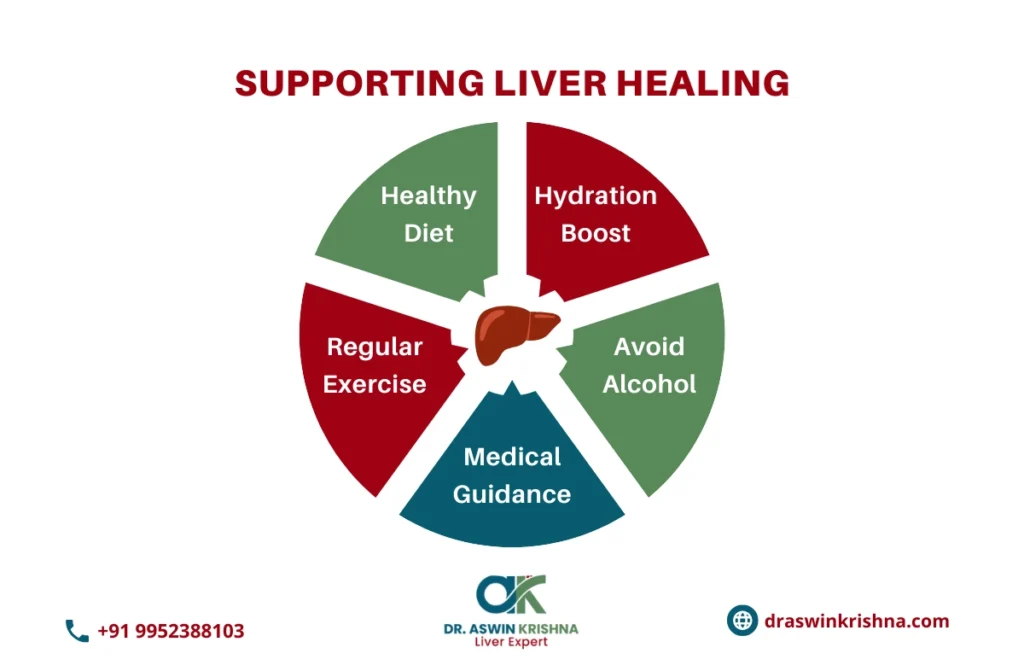
10 Signs Your Liver is Healing
The liver is unique in its ability to regenerate. This means that even after significant damage, the liver can repair itself with proper care and lifestyle changes. Recognizing these 10 signs your liver is healing helps you appreciate its remarkable capabilities and encourages you to adopt practices that support recovery.
1. Increased Energy Levels
When your liver starts functioning more efficiently, one of the first noticeable changes is a steady boost in your energy levels. The liver plays a vital role in filtering toxins and producing glucose—its recovery leads to better nutrient absorption and cleaner blood, directly improving stamina.
- Your body starts metabolizing nutrients more effectively, which translates to sustained energy throughout the day.
- Waking up feels easier, and you feel less dependent on caffeine or energy drinks.
- There’s a reduced sense of chronic fatigue, especially after meals or mild exertion.
- You may notice better physical endurance during activities like walking, gym workouts, or even long work hours.
- This renewed energy is a promising sign of a healthy liver getting back on track.
2. Improved Digestion
As liver health improves, digestion often becomes noticeably smoother. A functioning liver aids in bile production, which is crucial for breaking down fats and absorbing fat-soluble vitamins.
- Less bloating or discomfort after meals indicates that bile flow is improving.
- You might notice your bowel movements becoming more regular and better formed.
- Indigestion, acid reflux, or food sensitivities may reduce over time.
- There’s a general lightness in the stomach even after heavier meals.
- These digestive improvements are common signs of a healthy liver regaining its rhythm.
3. Clearer Skin Tone
Your skin often mirrors your internal health—especially your liver. As the liver detoxifies more efficiently, skin conditions like acne, dullness, or blotchiness may start to fade.
- Skin may appear brighter, less oily, and more evenly toned.
- Breakouts, especially around the chin and forehead, may reduce significantly.
- If you previously had itchy or flaky skin due to toxin buildup, those symptoms may ease.
- Dark circles or puffiness around the eyes may also lessen.
- These visible changes are strong external signs of a healthy liver function.
4. Reduced Abdominal Bloating
Abdominal bloating can result from a sluggish liver struggling to manage fluid retention or poor digestion. As the liver heals, this bloat naturally decreases—one of the subtle signs of healthy liver function.
- You’ll start to feel less pressure or fullness after eating.
- Your clothes may fit more comfortably around the waist without changing your diet drastically.
- Flatulence, belching, or feelings of heaviness in the stomach may become less frequent.
- This change points to better bile flow and reduced inflammation—key signs of a healthy liver.
- It also suggests that your liver is handling toxins and fluid regulation more effectively.
5. Normalized Appetite
An overburdened liver can throw off your hunger signals. When healing begins, your appetite stabilizes—meaning you’re not overeating or under-eating.
- Cravings, especially for sugary or fatty foods, may reduce.
- You feel hungry at regular intervals and satisfied after eating.
- Emotional or stress-based affect the liver.
- Your body’s ability to recognize fullness becomes clearer and more reliable.
- These shifts in eating behavior often reflect signs of a healthy liver balancing metabolic hormones.
6. Stable Blood Sugar Levels
Your liver helps regulate blood sugar by storing and releasing glucose as needed. When healing begins, blood sugar levels become more stable, reducing the highs and crashes that cause mood swings or fatigue.
- You may notice fewer sugar cravings, especially late at night or after meals.
- Feeling shaky, dizzy, or irritable between meals starts to fade.
- Your energy remains more constant, even during long work hours or skipped snacks.
- Improved glucose regulation is a clear sign of a healthy liver balancing internal systems.
- These changes often happen subtly but steadily as the liver recovers its ability to support metabolic function.
7. Better Mood and Mental Clarity
A struggling liver can leave you feeling foggy, anxious, or down. As liver function improves, many people report feeling more emotionally balanced and mentally clear—one of the encouraging signs your liver is healing.
- Brain fog lifts—you can focus better during meetings, studying, or tasks that need attention.
- Mood swings, irritability, and anxiety become less frequent.
- Sleep patterns may improve, leading to more restful nights and sharper mornings.
- You feel more present and less distracted by mental fatigue.
- This emotional and cognitive reset is one of the deeper signs of a healthy liver detoxifying properly.
8. Healthy Weight Loss
Liver issues can slow metabolism and contribute to fat accumulation, particularly around the abdomen. As liver health improves, the body begins shedding excess fat more efficiently.
- Weight loss becomes more effortless, even with small dietary or lifestyle changes.
- Fat stored around the waistline starts to reduce noticeably.
- You may feel lighter, not just physically but also in terms of digestion and energy.
- Improved metabolism points to your liver processing fats and nutrients more effectively.
- This steady, healthy weight change is one of the physical signs of a healthy liver in action.
9. Fewer Allergy Symptoms
A sluggish liver can worsen histamine buildup, making allergies more intense. As the liver heals, many people notice that their seasonal or food-related sensitivities ease—one of the subtle but important signs of healthy liver function.
- Sneezing, skin rashes, and itchy eyes become less frequent.
- Food intolerances that once triggered bloating or hives may no longer cause a reaction.
- Recovery from mild allergies is quicker and less severe.
- You experience less inflammation, which reflects lower toxin levels.
- A reduced allergic response is often a subtle but reliable sign of a healthy liver regaining control.
10. Balanced Hormone Levels
The liver helps break down and remove excess hormones. When it’s working well, your body maintains a more stable hormonal environment, which affects everything from mood to skin to reproductive health.
- For women, irregular periods, acne, or mood swings may ease.
- For men, improved energy, muscle tone, and libido may be noticeable.
- You feel more emotionally stable and less affected by hormonal fluctuations.
- Conditions related to hormonal imbalances—like PCOS or thyroid issues—may feel less intense.
- These shifts often indicate a healthier, more responsive liver balancing hormone metabolism efficiently.
What are the Signs your Liver is Healing from Alcohol
Excessive alcohol consumption is a leading cause of liver damage. However, with the right steps, recovery is possible. Here are the signs your liver is healing from alcohol:
- Lower Inflammation Levels: Reduced swelling and tenderness in the abdomen are early indicators.
- Improved Enzyme Levels: Blood tests showing reduced ALT and AST enzymes confirm liver healing.
- Increased Energy: A detoxified body operates more efficiently, leaving you feeling rejuvenated.
- Normal Skin Tone: Jaundice fades as liver health improves.
Recognizing these signs can help you remain committed to sobriety and recovery.
How Much Alcohol can Cause Liver Damage?
Dr. Aswin Krishna emphasizes that the threshold for damage varies by individual. Regular consumption of more than 2-3 drinks daily for men or 1-2 drinks for women increases the risk. Even occasional binge drinking can harm the liver. Reducing alcohol intake and watching for signs your liver is healing from alcohol is crucial for long-term health.
Does your Liver Hurt When it’s Healing?
Dr. Aswin Krishna notes that while healing generally doesn’t cause pain, mild discomfort may occur due to inflammation. This discomfort is usually temporary and subsides as recovery progresses. If pain persists, consult a healthcare professional to rule out complications.
Supporting Liver Healing
To enhance liver recovery, Dr. Aswin Krishna recommends the following:
- Balanced Diet: Focus on whole foods rich in nutrients.
- Regular Exercise: Physical activity supports liver function.
- Hydration: Drinking plenty of water helps flush toxins.
- Avoid Alcohol: Eliminating alcohol is essential for recovery.
- Monitor Medications: Use only necessary medications and consult a doctor about potential liver effects.
By adopting these habits, you can amplify the signs your liver is healing and improve overall health.
Factors That Support Liver Healing
- Several lifestyle and dietary changes play a major role in recovery, especially when identifying Signs Your Liver Is Healing. A nutrient-rich diet with antioxidants reduces oxidative stress and supports cell regeneration. Hydration, adequate sleep, and consistent physical activity help regulate metabolism, allowing your liver to repair damaged tissues more efficiently.
- People often ask, What Are the Signs Your Liver Is Healing, and one key factor is reduced inflammation driven by toxin-free habits. Eliminating alcohol intake allows damaged liver cells to regenerate, improving enzyme balance. Adding foods like garlic, turmeric, and leafy vegetables enhances natural detoxification pathways, accelerating recovery timelines.
- Sustainable liver healing also depends on managing metabolic conditions such as diabetes and cholesterol. Proper medical monitoring ensures that improvements are measured accurately, particularly in conditions like fatty liver, where early lifestyle modifications play a major role. These steps boost your chances of achieving signs of healthy liver function.
Warning Signs and When to Seek Medical Care
- Unusual fatigue, persistent nausea, or right-upper abdominal pain may indicate underlying complications that require medical assistance. These symptoms often appear when the liver struggles to filter toxins effectively, disrupting energy levels and digestion. Immediate evaluation helps prevent further damage in both mild and severe liver disorders.
- Yellowing of the eyes or skin, known as jaundice, requires prompt medical attention because it suggests a buildup of bilirubin. This condition often appears when healing is not progressing as expected, despite efforts to monitor Signs your liver is healing from alcohol. Early detection ensures timely intervention, reducing the risk of liver failure.
- Dark urine, pale stools, or swelling in the abdomen or legs indicate impaired liver function and possible fluid retention. These signs highlight the importance of evaluating blood tests and imaging at the right time to prevent irreversible complications. When these changes persist, medical assessment becomes essential.
Challenges and Complications in Recovery
- Liver recovery may be slowed by ongoing inflammation, especially in conditions like non-alcoholic fatty liver disease. Many people expect rapid improvement, but healing is gradual even when observing Signs your liver is healing from fatty liver. Metabolic syndrome, obesity, and insulin resistance can prolong the process, requiring strict dietary and lifestyle control.
- Alcohol-related liver conditions may involve chronic inflammation and scarring that take months or years to reverse. Even after stopping alcohol, some individuals experience setbacks when the liver struggles to regenerate effectively. Monitoring consistent Signs your liver is healing from alcohol helps track progress and detect worsening symptoms early.
- Another challenge involves medication or toxin exposure, which may strain the liver further during recovery. Overuse of painkillers, herbal products, or supplements without guidance can delay healing. Regular checkups ensure that supportive treatment remains effective and aligned with recovery goals.
Long-Term Liver Health Maintenance
- Maintaining a strong and healthy liver requires long-term consistency with diet, exercise, and medical follow-ups. A balanced lifestyle with minimal exposure to toxins ensures sustainable improvements that align with Signs Your Liver Is Healing. This approach stabilizes enzyme levels and supports long-lasting signs of healthy liver function.
- Individuals recovering from fatty liver must continue disciplined habits even after observing repeated Signs your liver is healing from fatty liver. Weight management, controlled sugar intake, and routine physical activity prevent fat accumulation from returning. Consistent habits are essential to maintaining liver resilience and avoiding future complications.
- Stress control, adequate sleep, and limiting alcohol are equally important to prevent recurring inflammation. These practices support hormonal balance, reduce oxidative damage, and enhance the liver’s regenerative capacity. When maintained over time, they create conditions that protect the liver from chronic disease and structural damage.
Conclusion
Understanding the signs your liver is healing is a powerful step in your health journey. With guidance from experts like Dr. Aswin Krishna, you can take meaningful actions to support liver recovery and overall well-being. Whether it’s improved digestion, clearer skin, or more energy, these signs are proof that healing is possible.
